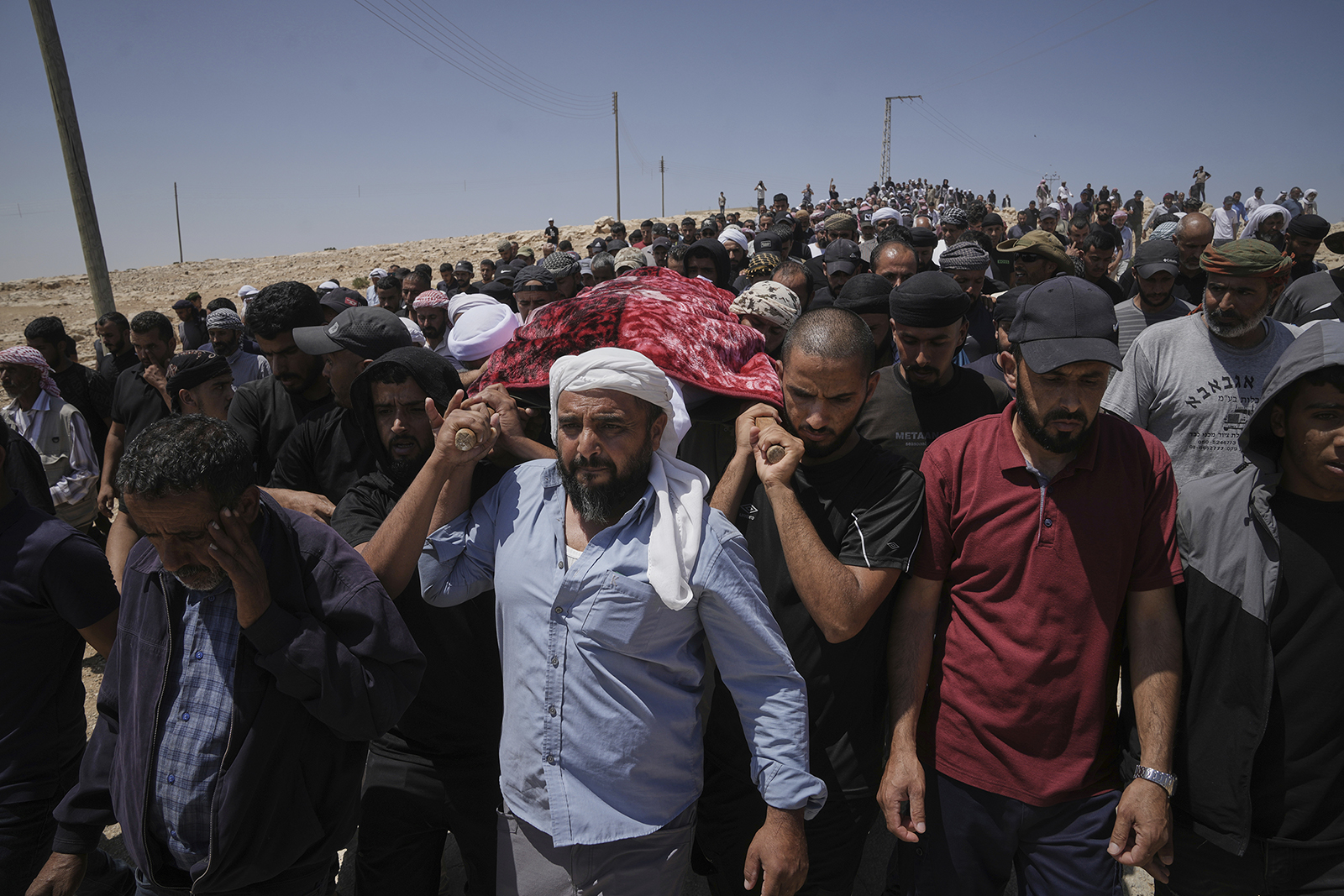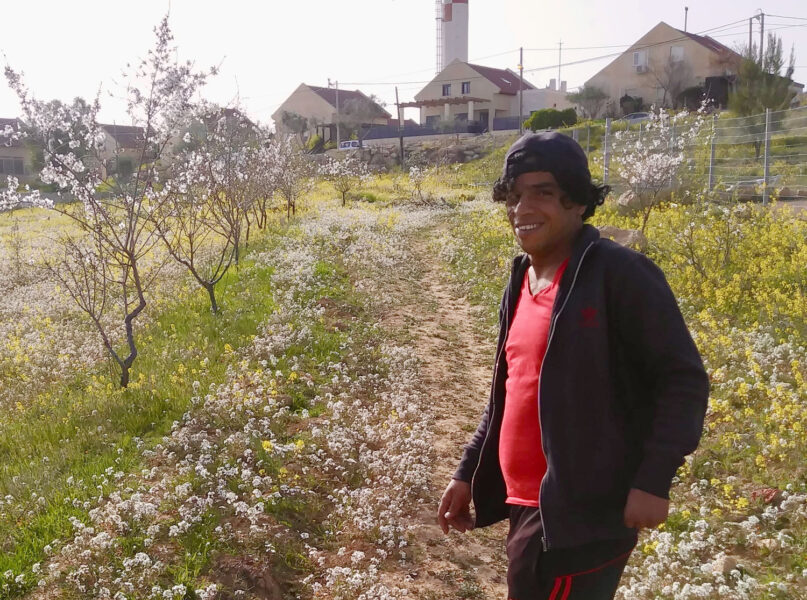
(RNS) — Awdah Hathaleen, a well-known West Bank Palestinian activist shot and killed by an Israeli settler on July 28, was buried Thursday (Aug. 7), after 10 days of negotiations between the family and the Israeli army and police over funeral arrangements.
Only about 200 people were able to attend the early morning funeral, after the military closed off Hathaleen’s village and set up checkpoints at key areas. A military drone circled overhead.
Hathaleen was shot in the chest by a settler who began firing indiscriminately after entering the village driving an excavator to clear land for more settlement building. After the excavator hit a resident, knocking him unconscious, some villagers threw stones at the excavator, prompting the settler to walk toward the village center and start shooting, according to news reports. Film shot at the scene showed the attacker opening fire.
Hathaleen, who was in the village’s center, was shot and died on the way to the hospital.
RELATED: Well-known Palestinian activist committed to nonviolence killed by an Israeli settler
A 31-year-old English teacher at a regional school, Hathaleen was committed to nonviolence and had befriended many Muslims, Jews and Christians across the world in his quest to secure equal rights for Palestinian Bedouins in his village, who have been increasingly hemmed in by Israeli settlements.
His village of Umm al-Khair is part of Masafer Yatta, a collection of 19 hamlets that was depicted in this year’s Oscar-winning documentary “No Other Land.” Hathaleen had collected video footage for the documentary. The film’s lead subject, Basel Adra, a Palestinian journalist and activist, attended the funeral.

Awdah Hathaleen in his village, Umm al-Khair, in 2019. Rising above the the village are Israeli settlements. (Photo courtesy of Erez Bleicher)
Since the Hamas attack on Israel in 2023, violence against West Bank Palestinians has skyrocketed. Hathaleen and others felt increasingly threatened. In June, Hathaleen and a cousin accepted an invitation to talk to Jewish and Christian congregations in the U.S.. But on arrival in San Francisco, U.S. Customs and Border Protection revoked their visas and they were put on a plane back home the following day.
“He touched the lives of thousands and thousands of people and he brought so many people to Umm al-Khair and to the West Bank and told the story of Area C and the Palestinian struggle,” said Maya Rosen, a Jerusalem-based activist and journalist who befriended Hathaleen and attended the funeral. “For so many people, he was their entry point into that, and I think you see that in the outpouring of grief and rage.”
Israeli authorities identified the alleged shooter as Yinon Levi, whom former President Joe Biden had sanctioned because of his involvement in expulsion and violence against Palestinians. President Donald Trump later lifted those sanctions.
Levi was released to house arrest, but a Jerusalem Magistrate Court last week rejected police’s request to extend his detention, the Israeli newspaper Haaretz reported. Since then, Levi has been seen in the village.
His presence has been especially painful for villagers, said Ali Hathaleen, Awdah’s nephew.
“The killer is totally free and he is always moving in and out of the village,” said Ali Hathaleen said. “He doesn’t care about the locals here. It’s so hard for them to see that the killer is totally free.”
The chances that Levi will be tried and, if found guilty, punished, are low. The Israeli human rights group Yesh Din’s monitoring found that between 2005 and 2024, only 3% of investigations into what the group described as “ideologically motivated crime” against Palestinians in the West Bank led to a full or partial conviction.
The Israeli military did, however, arrest 19 Palestinian villagers in connection with the shooting. The last three were expected to be released from Israeli detention on Thursday.
Ali Hathaleen, who spoke to RNS by phone, said the military and police initially refused to release Hathaleen’s body unless the family agreed to have him buried in the nearby city of Yatta, south of Hebron, and with only 15 mourners present. The family refused the demands, and some 70 women in the village then started a hunger strike. Negotiations continued throughout the week. At 4 a.m. Thursday, the military agreed to release the body and have him buried on land closer to the village.
The early morning funeral began with a viewing at Hathaleen’s brother’s house. The body was later carried to the village mosque, the schoolyard and then to the gravesite, a few kilometers away from the main cemetery where Hathaleen’s father and other relatives are buried.
Ali Hathaleen described the mood in the village as calm but sad. He said the eldest of his uncle’s three children is especially despondent.
“The boy is asking about his father. He keeps telling us that his father died and he wants him back,” Ali Hathaleen said.
Ali Hathaleen said he intended to carry on the work his uncle was so committed to.
“Awdah tried to get justice for the community and other communities,” Ali Hathaleen said. “I hope that I will (follow) on the same road and continue his message. He believed that someday he will reach the justice that he dreamed of.”
RELATED: Years of impunity against Jewish extremist terror have created a monster
